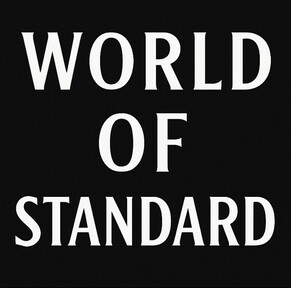Electricity Price Increase in Republika Srpska: Impact on the Economy of Republika Srpska and Bosnia and Herzegovina
14.08.2025By: Miloš Stevanović and Dejana Toromanović
The Government of Republika Srpska (RS) adopted information and gave its approval for an increase in electricity prices for end users the day before yesterday. This decision means that households and businesses in RS will soon be paying more for electricity — for the first time since the price hike at the beginning of 2025.
Decision on Electricity Price Increase in RS
The Government of RS approved a new electricity price hike for end consumers, which implies that both households and businesses will face higher electricity bills, marking the second increase since early 2025. From January 1, 2025, electricity bills were already up by an average of ~7.7% due to a previous increase, and this newly announced hike could raise bills by an additional ~20% at the start of next year.
Five distribution companies under the RS Power Utility (ERS) have requested the Energy Regulatory Commission (RERS) to increase the distribution network fee (“network charge”) by an average of up to 40%. If approved, this would significantly increase monthly bills for consumers. For example, a household consuming around 500 kWh per month would pay about 12 BAM more. This is a considerable burden on household budgets and business expenses, raising concerns about the broader economic impact on both RS and Bosnia and Herzegovina (BiH).
Reasons Behind the Electricity Price Hike
Government officials and energy sector representatives justify the price increase as a necessary step to maintain the stability of the power system. Petar Đokić, Minister of Energy and Mining of RS, emphasizes that production costs have drastically risen — thermal and hydroelectric plants are outdated and require substantial investments in equipment and maintenance. Since the government lacks a dedicated fund for modernization, the only way to secure funding is through higher electricity prices.
Additionally, poor production conditions have worsened the situation. ERS Director Luka Petrović explains that production facilities are in poor shape — coal quality is low, and hydrological conditions are unfavorable. Consequently, RS has had to import expensive electricity from the market to meet consumer demand. Buying power at several times the domestic rate has deepened ERS’s financial losses. Petrović warns that without price corrections, the system could fail to function properly.
Officials claim that even after the hike, electricity in RS will remain among the cheapest in the region. According to ERS, household electricity in RS would still be cheaper than in neighboring Serbia (~€51.2/MWh) or with Elektroprivreda BiH (~€49/MWh). Authorities seek to reassure the public that RS will maintain its position as the lowest-cost electricity provider in the region while aiming to keep the system financially afloat. Nevertheless, consumers will bear the brunt of the price increase, leading to broader economic consequences.
Impact on the Economy of Republika Srpska
The electricity price hike will inevitably affect the entire RS economy in several ways. Firstly, the cost of living will increase as electricity is a core component of the consumer basket. A 20% or greater rise in household bills will reduce disposable income, leaving families with less to spend on other goods and services. This may lead to lower domestic demand in sectors like retail and hospitality, slowing economic activity.
Ostoja Kremenović of the RS Consumer Movement warns of a chain reaction: “The issue isn’t just higher electricity prices. Everything will become more expensive — including services under RS and local jurisdiction — all justified by the electricity price increase.” In short, pricier electricity will indirectly raise the cost of various goods and services — from food and transport to municipal services — pushing overall inflation higher.
For businesses and industry, higher electricity prices mean increased operating costs, potentially reducing profit margins or forcing firms to raise their own prices. Energy-intensive industries (e.g., metallurgy, chemicals, construction materials) will be particularly affected. The RS Employers’ Union notes that local businesses have already lost their competitive edge due to previous electricity price hikes. “With current prices and last year’s increased network charges, we’re approaching EU electricity rates and losing competitiveness,” says Saša Aćić from the Employers’ Union.
The rising energy costs may lead to reduced production and exports, making products less competitive abroad. With the economy already facing challenges and falling exports, employers consider the new increase entirely unacceptable at this time.
There could also be secondary negative effects on employment and investment. Companies facing sharply higher bills may delay investments or even lay off workers to cut costs. Small and medium enterprises, in particular, are vulnerable due to limited financial reserves. All of this could slow RS’s economic growth going forward.
The RS Chamber of Commerce previously warned that ERS has significant room for internal savings and more efficient operations and that the burden shouldn’t be shifted entirely to businesses and citizens through higher prices. In other words, business leaders expect liquidity issues in the power sector to be resolved internally, not at the expense of the broader economy.
Wider Impact on Bosnia and Herzegovina’s Economy
Although the decision was made at the entity level, its effects will be felt throughout BiH. As a unified economic space, developments in one entity influence national macroeconomic indicators. Since RS makes up a significant portion of BiH’s economy, any slowdown due to costlier energy will lower the country’s overall GDP.
Electricity price hikes also contribute to higher inflation nationwide. Consumer price indices could rise as increased costs spill over into various categories of goods and services. The Federation of BiH is also in the process of increasing electricity prices — Elektroprivreda BiH has proposed a ~5% hike for households (starting September 1, 2025), with higher rates for large consumers. This means residents in both entities will face rising electricity bills in 2025/26, maintaining inflationary pressure across BiH.
The price increases come at a time of shifting energy dynamics. BiH had long been a net exporter of electricity, benefiting from foreign exchange inflows and a competitive edge. However, in recent years, this trend reversed — due to declining coal production, frequent droughts, and slow investment in replacement capacities, BiH has become a net importer.
Since 2019, output in thermal and hydro sectors has fallen while consumption continues to grow. For the first time, the country must import a significant portion of the electricity it once produced. This reversal has several negative consequences: worsening trade balances, lost revenue for domestic energy producers, and increased reliance on foreign markets.
The price hikes in both entities are partly aimed at reducing consumption and raising funds to finance imports and potential new investments. However, the burden of adjustment falls largely on BiH’s citizens and businesses — who are not responsible for poor sector management or global energy trends — yet they bear the consequences through higher prices.
ERS Debt and Alternatives: Was the Price Hike Necessary?
One key question is whether the price hike could have been avoided or at least mitigated through better financial management and alternative solutions.
Despite holding a monopoly in RS, ERS has run into severe financial trouble. Losses have accumulated over the years — nearly all ERS production companies ended 2022 with combined losses of ~39.2 million BAM. To stay liquid, ERS has increasingly relied on commercial bank loans. In just two months at the end of 2024, ERS took out ~125 million BAM in short-term loans — a clear sign of distress.
At the same time, there’s a perception of non-transparent spending: ERS leadership has continued wasteful practices — for instance, planning to buy a new office building in Ljubinje for ~2 million BAM, while spending millions annually on marketing despite being a monopoly.
Ultimately, it’s the consumers who pay these costs — including rising interest on loans — through their electricity bills.
Critics argue the price hike wasn’t entirely necessary and that internal reserves and reforms should have been exhausted first. Opposition lawmakers claim the root cause of ERS’s financial issues lies in mismanagement — excessive political hiring, money draining through favored suppliers and projects, and overall inefficiency. “It’s unacceptable for companies that produce and sell electricity to operate at a loss. Worse yet, the public is paying the price for irresponsible management,” said MP Mirjana Orašanin.
Business leaders agree: cost-cutting within ERS — such as reducing excess staff, eliminating unnecessary spending, and making more rational investments — could help reduce the need for drastic price hikes.
Beyond internal savings, there are alternative financial mechanisms ERS could explore. Instead of relying on expensive short-term commercial loans, ERS could restructure its debt and seek more favorable financing from international capital markets. For instance, with RS Government guarantees or cooperation with institutions like the EBRD or World Bank, funds could be raised to refinance debt at lower interest rates and longer terms.
A “distressed debt” restructuring would consolidate and place current liabilities on a sustainable footing, stabilizing ERS finances without constant price hikes. Alternatively, ERS (or RS as owner) could issue bonds on international markets to finance energy system modernization, rather than relying solely on higher electricity revenues.
Naturally, such options carry risks and require reform. International lenders would demand strict restructuring and improved efficiency. However, experts believe that improving financial discipline and seeking strategic partners is a more sustainable path than continuously burdening citizens.
Conclusion
The announced electricity price increase in RS will undoubtedly have widespread effects on the economy and population — both in RS and across BiH. Higher prices will raise living and business costs, likely triggering further inflation through rising prices in other sectors. RS’s economy may lose part of its competitive edge, which would affect exports and investment.
On the other hand, authorities argue the hike was necessary to avoid a systemic collapse, given ongoing issues — declining domestic output, costly imports, rising debts, and the need for investment.
Thus, the price hike appears to be a necessary evil to ensure the financial recovery of Republika Srpska’s power sector. However, it is crucial that decision-makers distribute the burden of recovery fairly. This means that alongside the price increase, there must be strict austerity measures and restructuring within ERS to eliminate waste and corruption — both of which have contributed to the current crisis.
For Bosnia and Herzegovina as a whole, a stable energy sector is of strategic importance. In the short term, citizens will feel the negative effects of the price hike through higher bills, but in the long term, aligning prices with real production costs may be inevitable if the country wants to attract investments in new energy capacities and ensure energy independence.
It is essential that the price hike does not become a permanent “tax without return” — a burden on the public with no visible improvement in services. Instead, it must result in the modernization of the grid, more stable electricity supply, and a financially healthier utility company. If these goals are achieved, the economy of RS and BiH can benefit in the long term from a more reliable energy infrastructure.
Otherwise, there is a risk that the rising cost of electricity will become a brake on economic development and a source of public dissatisfaction. Therefore, this decision must be accompanied by careful economic measures: protecting the most vulnerable consumer groups, controlling inflation, and simultaneously carrying out deep reforms in the energy sector. Only in that way can this painful adjustment serve its purpose and lead to a sustainable recovery, rather than simply adding new burdens on businesses and citizens.
/ / /
"Standard Prva" LLC Bijeljina is a company registered in Bijeljina at the District Commercial Court in Bijeljina. Company’s activities are accountancy, repurchases of receivables, angel investing and other related services. Distressed debt is a part of the Group within which the company repurchases the receivables, which function and are not returned regularly.
Lawyer’s Office Stevanović is the leading lawyer’s office in the region with the seat in Bijeljina. The LO abbreviation represents Lawyer’s Office of Vesna Stevanović and Lawyer’s Office of Miloš Stevanović.
Contact for media press@advokati-stevanovic.com or via telephone 00 387 55 230 000 or 00387 55 22 4444.




